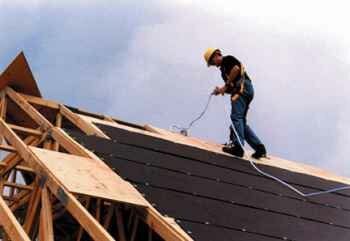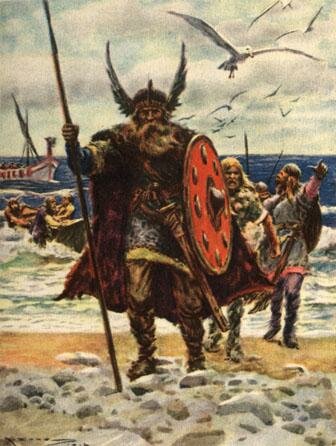Top 10 Most Dangerous Jobs
Suggested by SMSYou’ve seen the reality shows and have heard the stories of lives lost, but do you really know what the most dangerous jobs in America are? Take a look at this list, and we assure you that you will think twice before complaining about your job.
10. Law Enforcement

Although it is totally understandable and makes perfect logical sense, it is a bit sad to know that the brave men and women whose job it is to protect the public have such a dangerous occupation. (We can comfort ourselves a bit by noting that it is number 10, not number 1.) You might like to think of Chief Wiggum (from The Simpsons) looking for his next doughnut, but don’t ever forget that there is a reason that police have firearms and bulletproof vests. When your job description is confronting criminals (often in unsavory locations), you definitely face perils more serious than most other occupations.
9. Sanitation Workers

Wait – what??? The folks who pick up our garbage and refuse have a more dangerous job than police officers? Strangely enough, that is the case. The fatality rate for sanitation workers is 22.8 per 100,000 (a shade higher than the rate for law enforcement), but there is a bit more to the story. This category covers a lot of ground, including: heavy machinery operators (often in construction zones), manual laborers handling hazardous materials, and also your garden-variety sanitation worker who picks up your residential refuse (which is a very physical job). Never forget that the weather conditions play a role, especially with the larger items in commercial locations, and some of the collected materials often create fumes that make them difficult to handle. Safety has become a bigger concern for the industry, but the dangers are still there.
8. Drivers (Truckers, Traveling Sales People, etc.)

If you don’t use per capita figures, but just go off of the raw numbers, this category should be number 1 on our list. More people die on our nation’s highways than in any other location (and we’re not fudging numbers by including recreational drivers here). Everyone who has ever gotten behind the wheel of a car can tell you why this employment category is on the list: unsafe (and often drunk) drivers on the road, weather conditions, road construction (or lack of repair), etc. The list of contributing factors could go on forever, but the biggest reason is driver fatigue (often because of the long periods of time behind the wheel). This job has become safer over the years, primarily due to automotive advances such as air bags and better seat belt restraints. However, because the biggest reason for highway fatalities is driver fatigue (and we all know that the additional factor of Mother Nature isn’t going anywhere soon), it seems clear that this one will likely be on the list for a long time to come.
7. Roofers

Again, this one is not much of a surprise, as the job description entails one to work for many hours on top of a house (those slanted roofs are just an accident waiting to happen). Taking both commercial and residential work into consideration, the people who repair and install roofs have one difficult job. We’ve already mentioned the dicey working place (your cubicle looks much nicer now, eh?), but don’t forget that they are working with pneumatic tools, potentially hazardous materials (like tar and asphalt), and sitting out in the sun for hours on end is not the best way to avoid a heat-related illness. The current slowdown in the new housing market might affect the injury and fatality rate going forward (fewer workers means fewer injuries), but it makes the list right now.
6. Electrical Power Line Workers

Once again, a no-brainer. Look at the picture, for crying out loud! You combine frequently being very high in the air with your work being the installation and repair of high voltage lines, and you have a job that few have the guts to attempt. Like most jobs on this list, the industry has responded by instituting a great number of safety measures. However, there are some things that are difficult to make safe about this job. Want an example? These guys almost always have to go through cable and phone lines (which are lower) to get to the power lines – you almost expect them to go up blindfolded next time just to make it even more dangerous.
5. Farmers and Ranchers

We know you are wondering how Old McDonald is higher on the list than the guy works around high voltage lines. Well, the statistics don’t lie – roughly 38 deaths per 100,000. The primary cause of all of these deaths? The exact reason you would expect — the heavy machinery that is used to cultivate the land and to harvest crops. We’ve all heard about the farmer who lost a finger (or worse), but sometimes those machines can take a life as well. Think about that next time you complain about food prices.
4. Iron and Steel Workers

This category is pretty broad, encompassing both the individuals who install iron or steel items (like girders, columns, etc.) in the course of construction of a bridge, building, and other structures, as well as the factory workers who create the iron and steel beams that the construction-site workers install. If you have ever seen a building going up, then you know exactly why these guys are on the list – they work at ridiculous heights! The biggest reason for injury or death is, unsurprisingly, because of falls from those great heights. Fortunately, the vast majority of these workers wear harnesses, and a great many construction sites provide safety nets. Nevertheless, the combination of working at incredible heights and working with molten metal (including the lousy fumes) makes this a job that puts those cubicle jockeys to shame.
3. Pilots and Flight Engineers

You might be thinking to yourself – wait a minute, I always heard it was safer to fly than to drive! Remember, this list is based upon per capita deaths, not simply the raw numbers. Also, when you add in helicopter pilots (who are often sent in rescue missions, not always in the easiest location or in the nicest weather conditions), it begins to make more sense. Further added into the group are pilots transporting cargo, crop dusters, and test pilots (whose job appears to be taking incredibly perilous risks), so now the rank of Number 3 is not a mystery. As with so many others, weather conditions are a big factor here, but you also have the crop dusters handling toxins (and not having a traditional landing strip, either). Although full crashes of commercial airplanes are relatively rare, “pilot” is not limited to that crowd.
2. Timber Cutters/Loggers

When the reality show Ax Men came out, you were probably wondering why anyone would want to watch a show about guys cutting down trees. Shame on you (and we are surprised you didn’t figure out that the combination of huge chainsaws and gigantic trees was a recipe for workplace disaster). With factors such as high winds, hidden roots, and the fact that they are often high up in the air (usually at heights of 100 feet), the rate of injury for timber cutters is THIRTY TIMES that of a regular workplace. Oh, and don’t forget the fact that they are using ginormous gas-powered chainsaws. Oddly, that is still not enough to be number one, which only goes to show you how dangerous the number one job really is (and we think its reality show gets better ratings).
1. Commercial Fishermen

They don’t call it Deadliest Catch for nothing, you know. The most dangerous job in America has given us a bona fide hit of a reality show….although it seems kind of morbid when you look at the numbers. For every 100,000 fishermen, roughly 112 will die each year. That doesn’t sound like much, until you realize that a normal workplace has 4 deaths per 100,000. Commercial fishermen often work in harsh conditions, many times dozens (or even hundreds) of miles from shore. From getting tangled in the nets to falling on a slick deck to even being thrown overboard, this is not the job for the weak of heart. It’s pretty rare that you have a job in which the Coast Guard keeps tabs on you, just in case something goes wrong. Serious injuries are frequent, but the reward for those who do survive can be very, very lucrative. Hell, you might even become a reality show star!










like that show…
what about me, I am an E.O.D. technitian in the US Army(explosive ordinance disposal)I mean, for Christ's sake I freaking disarm bombs for a living,don't you think that's kind of dangerous?
Francisco, I served in the army as well. I am aware that eod use alot of precausion to disarm bombs. My goodness you guys use robots and high tech cameras to do the dirty work
Really… thats really dangerous Francisco. I understand.
those jobs are not that dangerous
apparently being a humanitarian aid worker is meant to be one of the four most dangerous jobs in the world
I have been in forestry for over 10 years and now a certifed Arborist that climbs trees for a living and i'll be the first to say it is very DANGEROUS……BUT I think being in the army should be #1 hands down! I risk my life on a daily basis but not like theas guys do…
i m working in sub station electrical 8 year and is most dangerous job.
your telling me that a Sanitation Worker
has a more dangerous job then a wildland firfighter? you are dumb….I am a wildland firefighter and it is very dangerous